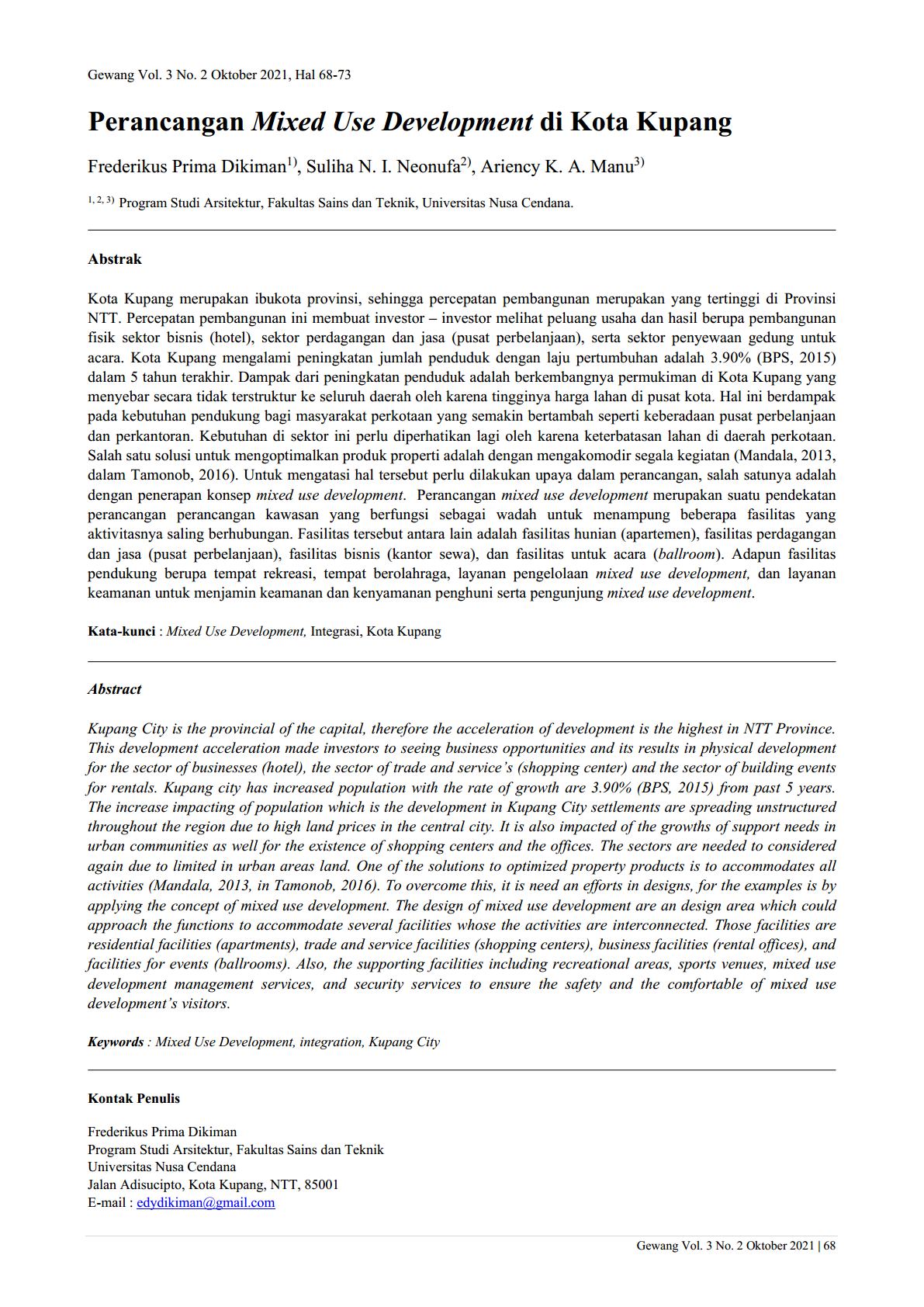Perancangan Mixed Use Development di Kota Kupang
Main Article Content
Abstract
Kupang City is the provincial of the capital, therefore the acceleration of development is the highest in NTT Province. This development acceleration made investors to seeing business opportunities and its results in physical development for the sector of businesses (hotel), the sector of trade and service’s (shopping center) and the sector of building events for rentals. Kupang city has increased population with the rate of growth are 3.90% (BPS, 2015) from past 5 years. The increase impacting of population which is the development in Kupang City settlements are spreading unstructured throughout the region due to high land prices in the central city. It is also impacted of the growths of support needs in urban communities as well for the existence of shopping centers and the offices. The sectors are needed to considered again due to limited in urban areas land. One of the solutions to optimized property products is to accommodates all activities (Mandala, 2013, in Tamonob, 2016). To overcome this, it is need an efforts in designs, for the examples is by applying the concept of mixed use development. The design of mixed use development are an design area which could approach the functions to accommodate several facilities whose the activities are interconnected. Those facilities are residential facilities (apartments), trade and service facilities (shopping centers), business facilities (rental offices), and facilities for events (ballrooms). Also, the supporting facilities including recreational areas, sports venues, mixed use development management services, and security services to ensure the safety and the comfortable of mixed use development’s visitors.
Downloads
Article Details
This license enables reusers to distribute, remix, adapt, and build upon the material in any medium or format, so long as attribution is given to the creator. The license allows for commercial use

